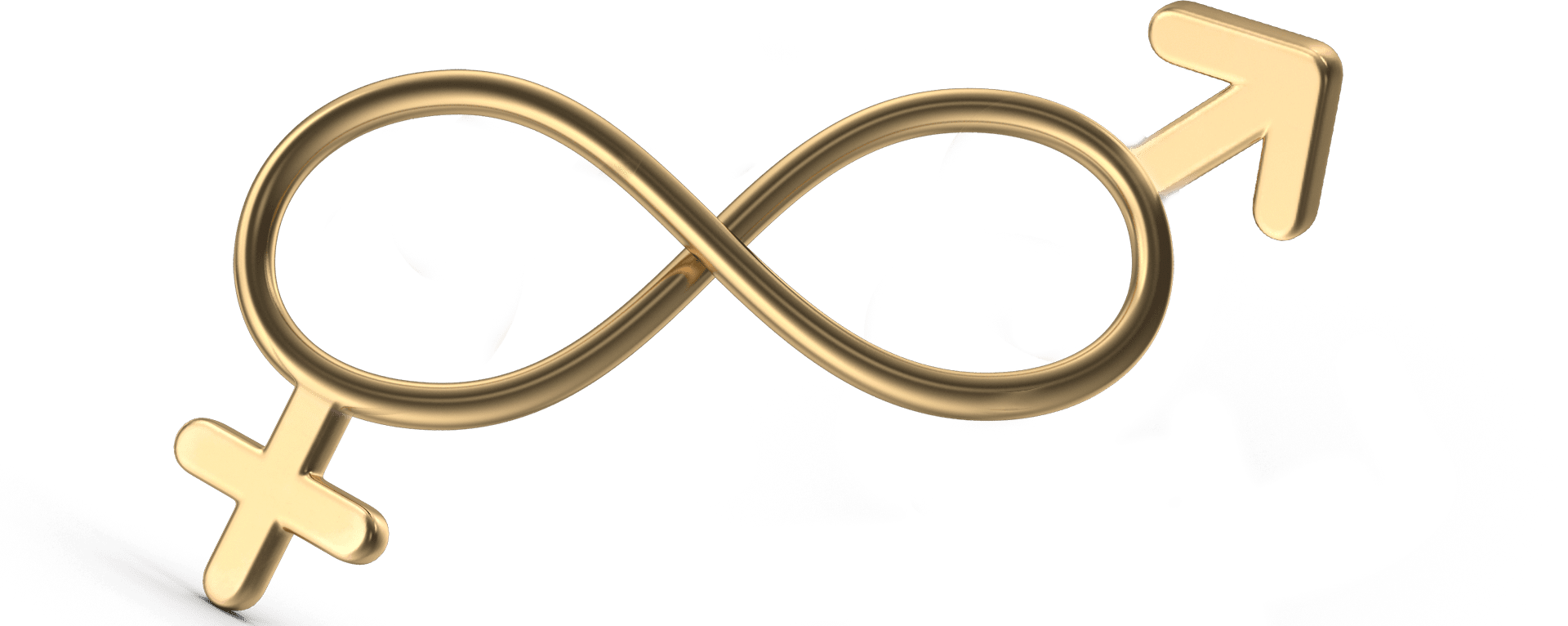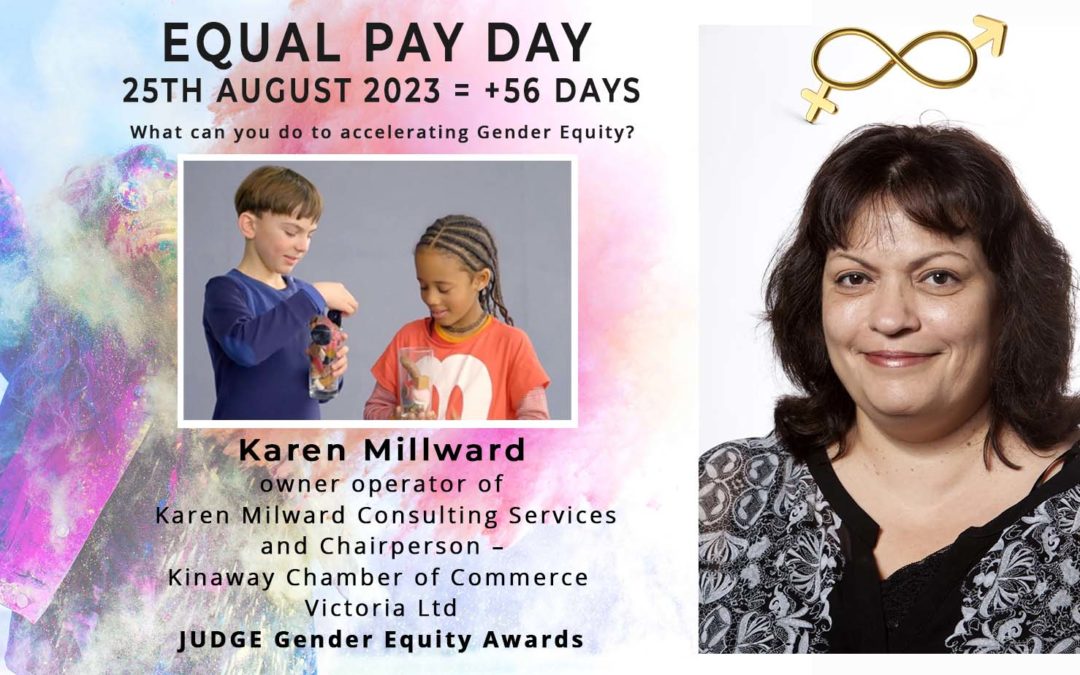Imagine a world where every person is valued for their contributions, regardless of their gender. A world where the principles of equality and fairness guide our actions, shaping a society that empowers everyone to thrive. This vision isn’t a distant dream – it’s an achievable reality, and it starts with us. As Equal Pay Day approaches on August 25, 2023, we have an opportunity to make a profound impact.
In 1969, Australian women celebrated a historic milestone as they secured the right to equal pay for equal work. But even today, a crucial piece of the puzzle remains missing. On average, women in Australia continue to earn less than their male counterparts, a persistent issue known as the gender pay gap. Equal Pay Day symbolizes the 56 extra days that women must work from the end of the financial year to earn the same average pay as men.
This year we are taking a stand to make a difference. So we asked the judges for the Gender Equity Awards what they think and this is the response from Karen Millward.
Karen Milward – owner operator of Karen Milward Consulting Services and Chairperson – Kinaway Chamber of Commerce Victoria Ltd
Karen’s message
It is so important for young girls and women globally to have the courage and confidence to ask for equal pay and a pay rise. For Aboriginal girls and women, we have the added layer of disadvantage.
We were lucky to be able to gain employment in the first instance in the 1970s but only for blue collar jobs and only after the 1967 referendum to give Aboriginal people the same rights as other Australians. The thought of working in an office, a bank or the corporate world was not heard of, or accepted by the broader Australian community – only domestic work was suitable.
It wasn’t until the 1980s that the Aboriginal community spoke out about having access to education, going to university and studying in any field available. Aboriginal people relied on government subsidised and sponsored education and employment programs to ensure our community had access to opportunities other Australians have enjoyed for many decades. Unfortunately, we still need Aboriginal employment programs and strategies to ensure that our community including Aboriginal women have the right to gain the skills, knowledge and expertise so that they can apply for other roles and senior and executive type roles.
Asking for a pay rise or being able to climb the ladder in any sector or industry didn’t present itself until the early 2000s.
My own experience – I have had jobs in mainstream industries and sectors both in identified and unidentified roles. Asking for a pay rise or another opportunity was not something I thought of a lot as I just felt lucky I had a job. I didn’t feel valued as a woman or an Aboriginal woman as I was often told I only got the job because I was Aboriginal not on merit – very hurtful as a young woman to experience that from other colleagues and employees. So I just kept my head down, didn’t cause any waves and did my job and I did it well!
It wasn’t until I started my own business in 2004 that I learned how to negotiate my rates for contracts. Although this was great I often got asked after submitting tenders – ‘can you do the same work as a non-Aboriginal consultancy’. I was like I just wrote this great tender didn’t I? We want to give you an opportunity as an Aboriginal owned and operated business because we can tick some boxes and we look good that we are helping your community out.
Some future clients also asked me if we give you this contract will you reduce your rates – at least we are giving you the work. This was from non-Aboriginal women in senior roles – so I was a bit shocked. It became pretty clear that I was not valued for my skills, knowledge and expertise it was a tick a box exercise. I didn’t confront this properly I just let it go and then things changed but then I had the same thing happen only 6 months ago.
I was select tendered with two other non-Aboriginal consultancies for some work and they chose one of the non-Aboriginal consultancies – they said my fees were too high. I asked for feedback and they said your fees were too high but I said I would negotiate if asked which was on the front page of my proposal and they said no.
After 15 years I put my rates up as people kept advising me too but I didn’t want to because I didn’t think I would get the work. If client’s just valued the work we do as Aboriginal women, it would go a long way to support our confidence and courage to speak up and out.
Now that I am older and have 19 years of consultancy experience under my belt, I encourage other Aboriginal and non-Aboriginal women not to put themselves in this position – I find the younger female generation are doing this better than when I was younger but more work needs to be done to support our women to thrive and be the best that they can be.
We shouldn’t just be breaking the glass ceiling we need to crack it wide open.

